detail profile giorgos konstas
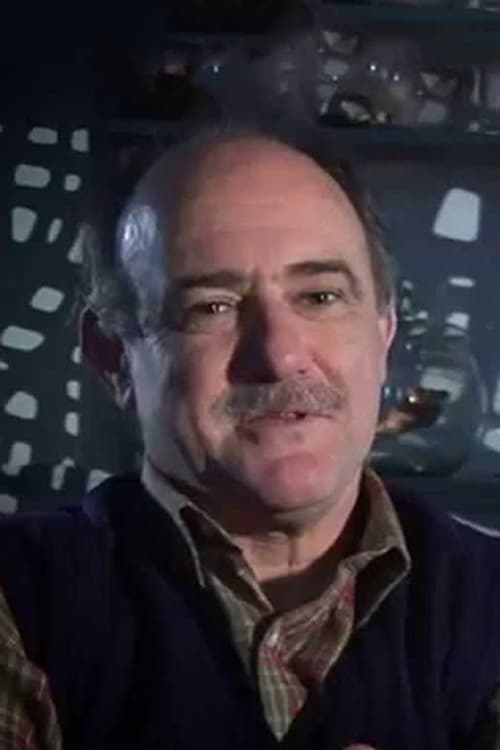
Giorgos Konstas
Γιώργος Κώνστας
atau dikenal sebagai
Riwayat Hidup
George Konstas (born in Piraeus in 1949) studied at the Drama School of the Piraeus Association and at the Piraeus Conservatory (classical singing and flute).
He also studied dance and worked in Zouzou Nikoloudi's Chorika and Rallou Manou's Chorodrama.
For several years he worked at the National Theater with directors Alexis Minotis, Alexis Solomos, Spyros Evangelatos and others.
From 1983 to 1987 he took over the theater department of the Alberus Magnus Gymnasium in Southern Germany.
m In 1991-1992, through the Municipality of Corinth and the support of the European Union, he directed a program on the Study of Ancient Drama, which resulted in the creation of a large theater group and the staging of Euripides' tragedy "Bacchae" in the ancient theaters of Corinth.
He starred in many theatrical works such as "The Handmaids" by Jean Genet, directed by himself, "Death and the Daughter" by Dorfman, directed by Pantelis Voulgaris, "Totenfloss" by Harald Müller, directed by Ersis Vasilikiotis, "Trachiniae" by Sophocles, directed by Nikos Diamantis, "Behind the Scenes" by Sartre, directed by himself, "The Conservator", a play of his own, directed by himself.
He played key roles in Greek cinema and television films.
George Konstas passed away on Saturday, January 17, at the age of 65.
Info Pribadi
Peran Yang Di Mainkan Giorgos Konstas
 At the time of the Greek...
At the time of the Greek...The Christmas Tango 2011
At the time of the Greek junta, in an isolated army camp, a lieutenant forces a soldier to teach him the tango in order to ask the wife of his Colonel to dance with him.
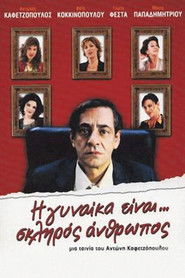 Johnny Maniatis Anthony Kafetzopoulos is a...
Johnny Maniatis Anthony Kafetzopoulos is a...The Woman Is... A Tough Person 2005
Johnny Maniatis (Anthony Kafetzopoulos) is a successful advertiser and ... womanizer. Georgia (Fay Kokkinopoulou), currently the woman of his life, wants urgently to make a child. His mother, Aspasia (Jenny Roussea) is absent. His faithful secretary, Herse (Yota Festa) is tired of the irresponsible behavior, but tries to help him. His daughter Artemis (Eleni Apostolopoulos) is arrested aain for stealing the eve of her trial, while the former wife Martha (Mania Papadimitriou) is throwing him all the blame ...
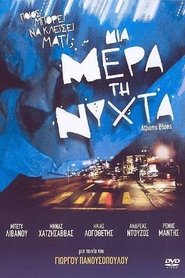 A group of men in their...
A group of men in their...Athens Blues 2001
A group of men in their sixties that spend the August nights in Athens outside a pharmacy during night shift, an ambulance driver who has an affair with a younger girl, a middle-aged couple who have invented a lie to renew their passion for one another, a child pretending to sleepwalk in the streets of Athens, two younger people who are tied together in an office after a burglar attack, and other amorous encounters during the same night.
 A writer sees the people around...
A writer sees the people around...Life is a thousand and a half 1995
A writer sees the people around him exclusively as book heroes, his decision to write a book about them causes him real life problems.
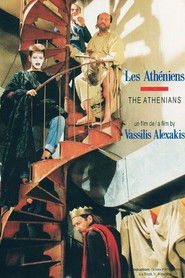 This is a series of intersecting...
This is a series of intersecting...The Athenians 1990
This is a series of intersecting stories. A petty crook and former lover of a lazy ingénue steals the box-office receipts from the Odeon of Herodus Atticus, on the day an important football game is also taking place. There is also the story of the half-mad mother of the ingénue who refuses to put shoes on because she believes that shoes lead people astray. An eccentric grave-digger produces a two-seater coffin for couple-victims of car accidents. The film also tells the story of one of the Odeon's cleaning women and of a watermelon that goes all around the city, pursued by a tired theater technician and his sister, who is a tour guide. The impresario conducts an inquiry after the theft, but the thief and his two associates, the ingénue and the technician, use what was stolen to set up a small theatre. Small everyday stories and comic incidents combine to create a portrait of modern-day Athens.
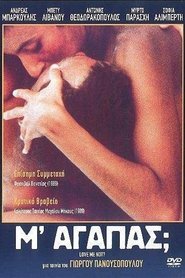 Spying a lissome young woman standing...
Spying a lissome young woman standing...Love Me Not? 1989
Spying a lissome young woman standing topless on a nearby balcony, Giorgos (Andreas Barcoulis) climbs up onto a nearby rooftop to get a better look. At a critical moment in his climb, his family and friends call out to him and he falls, suffering a terrible blow to the head. Ineed, at the hospital, the family is told that he is brain dead, and that if they like, his heart can be given to someone else as a transplant. Giorgos' grieving wife (Betty Livanou) agrees to this arrangement. The film now follows the recipient of the dead man's heart (Giorgos Constas), as he wanders all over Greece, driven by his newly lusty heart into the arms of many beautiful women. Eventually he is led to the one woman his new heart truly loved, Giorgios' wife.
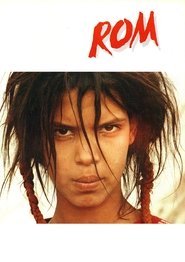 In his film Menelaos Karamaghiolis attempts...
In his film Menelaos Karamaghiolis attempts...Rom 1989
In his film, Menelaos Karamaghiolis attempts to trace the evolution of the gypsy race in Europe, particularly in Greece, through four different points of view. These are expressed in the narrations of four people: the Teacher, the Photographer, Tamara, the old gypsy lady and the young girl Aima.
 After 11yearold Petros loses his father...
After 11yearold Petros loses his father...Trip to Australia 1989
After 11-year-old Petros loses his father in a car accident in Melbourne, Australia, his mother decides to move the family to her homeland, Greece. Petros has been planning to run away from home ever since the big move. After persuading his classmate, Adonis, to join him, the two boys decide to make the journey to Australia together. Their parents look for the children all over Greece to no avail. The only one who knows the boys' whereabouts is their best friend, whom nobody believes. Petros and Adonis' pictures are published all over the press, but no one comes forward with any information. Meanwhile, the boys continue on their journey...
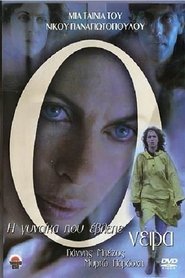 Something changes in the relationship of...
Something changes in the relationship of...The Woman Who Dreamed 1988
Something changes in the relationship of Achilleas and Anna when she starts to dream vividly and insists on relating her dreams to her husband. He is a barrister in the middle of an important murder trial and his temper becomes frayed with Anna's seeming indifference and involvement and preoccupation with her dream world.
 A music composer tries to deposit...
A music composer tries to deposit...In the Shadow of Fear 1988
A music composer tries to deposit money in his bank one morning, and is accused of counterfeiting. Harassed by the police, the gang of counterfeiters and a stranger, he becomes panic-stricken. The unjust charge brought against him ignites his deeper feelings of guilt which stem from his sterile existence and, mainly, from his inability to produce creative work. Then he flees and begins wandering in an unfamiliar "country" where his painful adventures will finally prove redeeming. The film is an existential drama in the form of a "dreamlike" thriller.
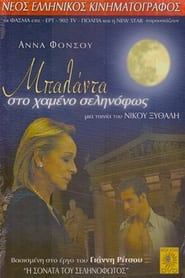 One night a woman and a...
One night a woman and a...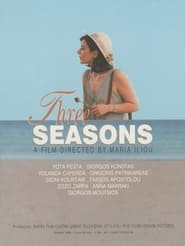 An existential reflection on time and...
An existential reflection on time and...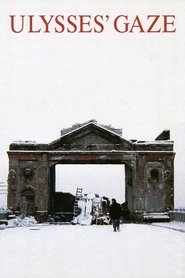 An exiled filmmaker finally returns to...
An exiled filmmaker finally returns to...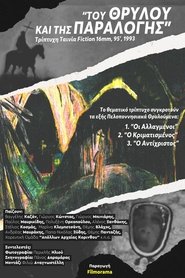 A triptych film inspired from Peloponnesian...
A triptych film inspired from Peloponnesian...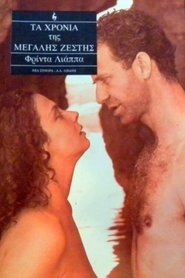 One womans lonely search for the...
One womans lonely search for the...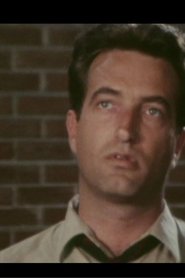
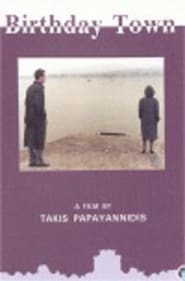
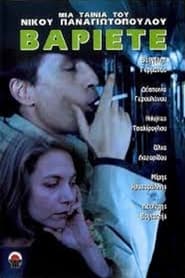 An actors troupe puts up a...
An actors troupe puts up a...